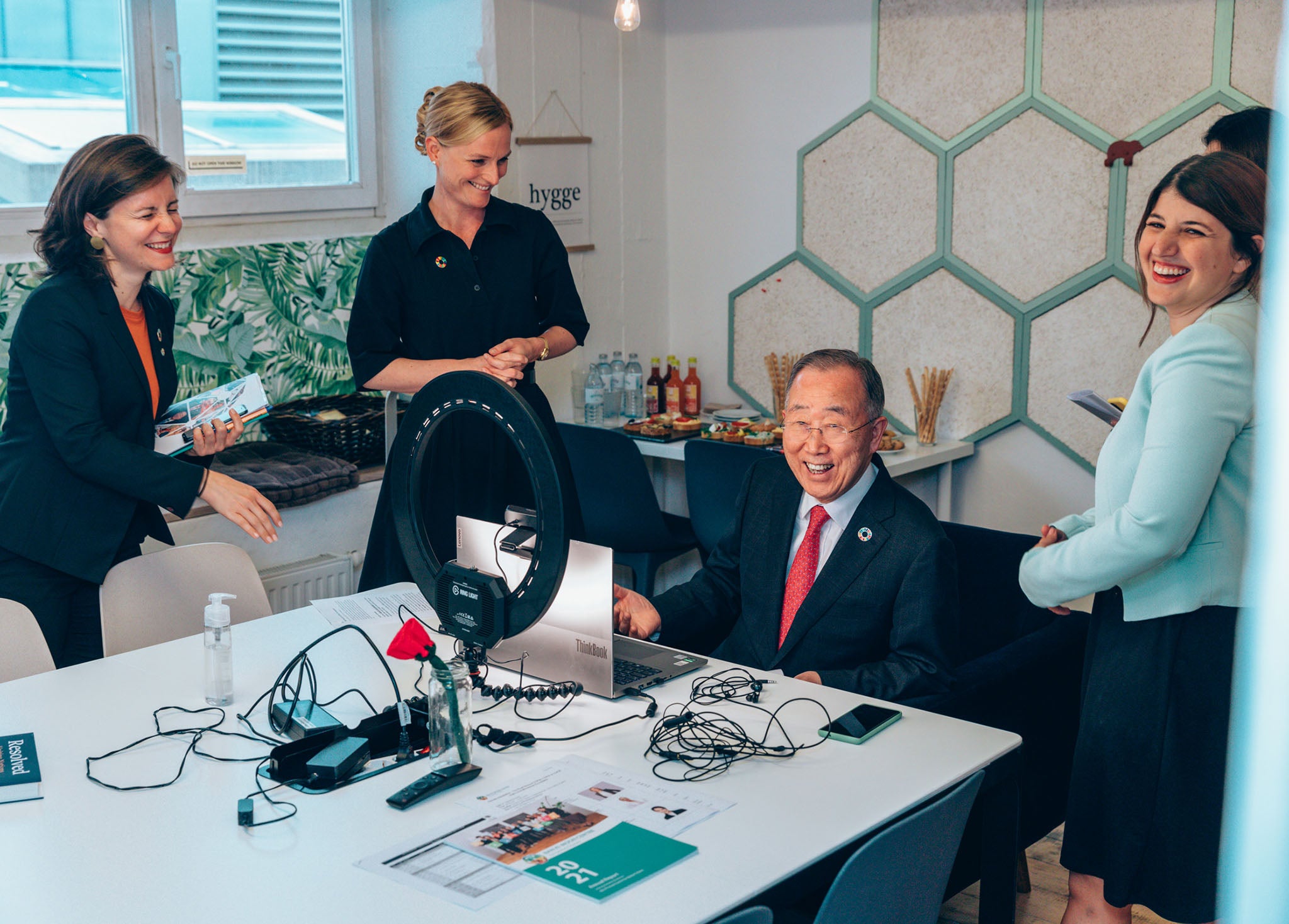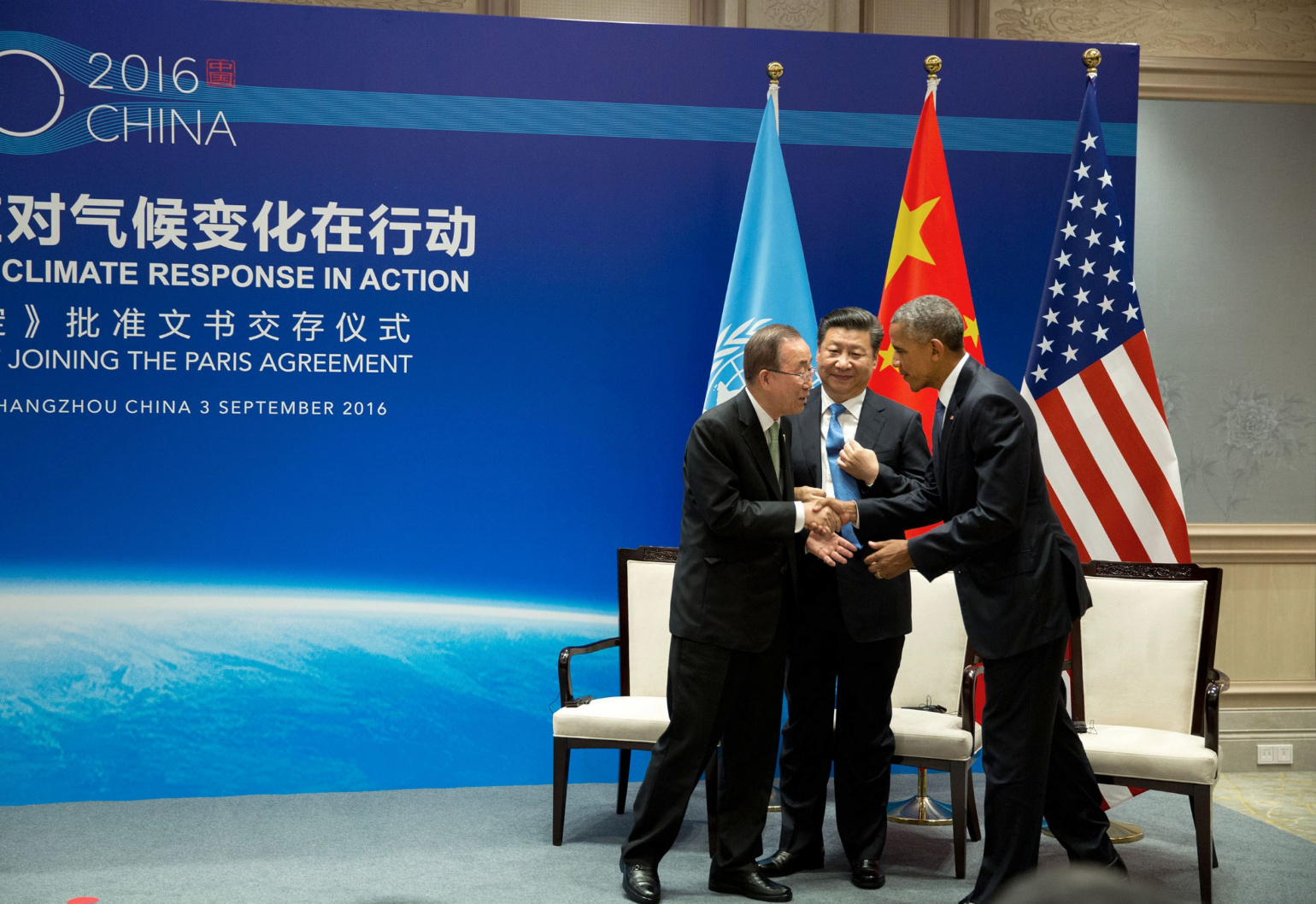‘Nature never forgives’: Former UN secretary general Ban Ki-moon issues urgent warning ahead of Cop27
Exclusive: The 8th Secretary General of the UN, who now co-chairs the Ban Ki-moon Centre for Global Citizens, tells senior climate correspondent Louise Boyle about what gives him cause for hope – and trepidation – just 60 days out from climate summit Cop27


Your support helps us to tell the story
From reproductive rights to climate change to Big Tech, The Independent is on the ground when the story is developing. Whether it's investigating the financials of Elon Musk's pro-Trump PAC or producing our latest documentary, 'The A Word', which shines a light on the American women fighting for reproductive rights, we know how important it is to parse out the facts from the messaging.
At such a critical moment in US history, we need reporters on the ground. Your donation allows us to keep sending journalists to speak to both sides of the story.
The Independent is trusted by Americans across the entire political spectrum. And unlike many other quality news outlets, we choose not to lock Americans out of our reporting and analysis with paywalls. We believe quality journalism should be available to everyone, paid for by those who can afford it.
Your support makes all the difference.In his time as the United Nations secretary general, Ban Ki-moon oversaw responses to several megadisasters. That included, in 2010, the devastating earthquake in Haiti, which left tens of thousands dead, and extreme flooding in Pakistan where 6 million people were displaced.
The catastrophes foreshadowed those of today which are being amplified by the climate crisis – including, again, in Pakistan where ferocious monsoons have left one-third of the country underwater.
Mr Ban, who spoke exclusively to The Independent in a wide-ranging interview on Cop27, the Russian invasion of Ukraine and US-China relations, recalled that following such tragedies he was reminded of a recent conversation that he had with Pope Francis.
“We have seen recently unusual, extraordinary natural disasters. We have to listen to the warnings from nature,” he said, via Zoom call from the Ban Ki-Moon Centre for Global Citizens in Vienna, Austria, on Tuesday, where he had hosted a roundtable on climate adaptation.
“[Pope Francis] helped a lot with the United Nations efforts [on climate change],” he continued. “He even issued Laudato Si, the Pope’s decree to Catholic people to work for a climate-friendly life.
“He said, ‘God always forgives. Human beings sometimes forgive. But nature never forgives.’”

Mr Ban was South Korea’s foreign minister when he was called to lead the United Nations in 2007. From the beginning, he prioritised climate change as “humankind’s biggest challenge”.
He was a stalwart presence at climate summits as UN chief, and his reputation as a “bridge-builder” helped shepherd through the 2015 Paris Agreement, to curb global temperature rise and stave off the worst of climate breakdown.
After stepping down as secretary general in 2016, Mr Ban has continued to promote ambitious global climate action and is ramping up his efforts in the countdown to Cop27, the international climate summit this November in Sharm el-Sheikh, Egypt, he said.
“As a former secretary general, I have been really working hard, meeting global leaders, travelling and emphasising the importance of working together to address climate change issues,” he said.
“Climate change is happening much, much faster. We have seen very unexpected, extraordinary and natural phenomena like wildfires on the West Coast of the United States, the Middle East and Mediterranean areas.”
The geopolitical landscape has also shifted dramatically in the months since the last Cop26 climate summit in Glasgow.
The fallout from Russia’s invasion of Ukraine has buckled global energy and food systems, leaving rich countries in turmoil and some poorer nations on the brink of famine.
The slashing of Russian gas imports, largely to Europe, has put some ambitious climate and clean energy targets in jeopardy. Climate scientists and the influential International Energy Agency have repeatedly warned that rapid scale-down of fossil fuels is critical this decade to keep to the warming threshold of 1.5 degrees Celsius – and that new major oil and gas projects would be disastrous.

Mr Ban said that some success had been achieved at Cop26, like the global deals to end deforestation by 2030, and cut emissions of methane, a powerful greenhouse gas. However, the final Glasgow pact was weakened from a commitment to “phase out” fossil fuels to “phase down” after an 11th hour intervention by India and China.
“I hope that there will be a clear-cut agreement when it comes to fossil fuels to be phased out, instead of phased down,” he said.
His“greatest disappointment” had been the failure of rich countries to provide $100bn in climate finance by 2020 to poorer counterparts facing the worst of climate extremes, he said.
So far, the collective pot has reached $83bn.
“This is a very serious disappointment for me as former secretary general,” Mr Ban said. “I really hope that Cop27 in Sharm el-Sheikh will have a firm agreement on this roadmap. There should also be a firm agreement to how this money will be raised and distributed. A successful Cop27 will need to see massive acceleration of mobilizing trillions of dollars needed to keep the world from climate collapse.”
Renewed tensions between major powers are causing concern ahead of the summit. At Cop26, relations between the US and China appeared positive after a joint declaration was issued on tackling the climate crisis. However, Beijing halted climate talks last month for “egregious provocation” after US lawmakers visited Taiwan, which China considers its territory.
“The US has the number two greenhouse gas emissions,” Mr Ban said. “But the United States is the richest country in the world and most powerful, most resourceful. Therefore, the United States should lead by example. That's what I'm really asking them.
“Now, the geopolitical situation is not favourable at this time. There is serious tension between the United States and China. During my time as secretary general, President Obama and President Xi Jinping were discussing this matter [climate change] and I was trying my best to bring the two leaders to work together. That really helped in the Paris climate change agreement, and implementation is much more important.
“Now what we see between United States and China is not helpful at all. I hope that the two countries will really work together. Climate change has nothing to do with politics, this is nature.
“They should overcome this kind of a political differences of views and work together on the climate issues. That’s my original, and sincere, appeal to the leaders of the two countries.”
After a summer of deadly wildfires, heat and flash floods, Mr Ban is one of the veterans of global diplomacy stepping up to call for more urgent action.
On Monday, he joined Laurence Tubiana, an architect of the Paris Agreement, on a video link with Australia’s government in Canberra, where they applauded renewed climate efforts but urged ministers to go further.
He also convened a roundtable discussion on adaptation with climate minsters from Germany, the United Arab Emirates, and Austria. Mr Ban, who launched a Global Commission on Adaptation in 2018, has stressed the importance of countries doing more to adapt to the current realities of climate change. At present, the amount of money dedicated to adaptation efforts has severely lagged compared to funding to cut emissions.
In a video message, Yasmine Fouad, Egypt’s environment minister and Cop27 chair, said adaptation was a top priority.
“Now it is the moment, to stand up and keep progressing on the Global Goal on Adaptation. We must show the success stories that protect and keep our local communities’ climate resilient,” she said.
Despite the momentum, there are concerns from some leaders that promises will not be kept. At the Africa Adaptation summit in Rotterdam, Netherlands, earlier this week, co-chaired by Mr Ban, a number of African leaders critised Western leaders’ absence as they called for greater funds to help their countries cope.
“I cannot fail to note with a touch of bitterness the absence of the leaders of the industrialised world,” said Senegalese President and African Union chief Macky Sall in his opening remarks.
“Because these are the main polluters of our planet and it is they who should finance adaptation.”
Mr Ban echoed Mr Sall’s assessment. “Africans have not contributed much, only 3 per cent in terms of global global greenhouse gas emissions, but 75 per cent of African income are being spent on purchasing food,” he said. “That’s because of a lack of water, problems in agricultural systems.”
He said that various agencies have been working to provide more drought-resilient seeds to farmers in Africa, along with technologies to make water use more efficient and prevent run-off from storms.
Mr Ban noted that Cop27’s success “will depend on whether the needs of Africa, the world’s most climate vulnerable continent, are met”.
“We need to see all countries in Sharm el-Sheikh pulling in the same direction,” he said. “The recently submitted Australian NDCs [an individual country’s emissions-reduction target] has been a good sign.
“But we also need those who were not at Cop26, like Brazil, China, and, frankly, Russia, as we move towards Cop27 in Egypt and Cop28 in the United Arab Emirates. Our efforts to tackle climate change, mitigation and adaptation must accelerate.”



Join our commenting forum
Join thought-provoking conversations, follow other Independent readers and see their replies
Comments